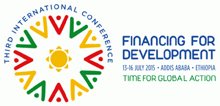
Building Trust in AI through Justice


Array
(
[thumbnail] => https://s42831.pcdn.co/wp-content/uploads/2022/09/hero-placeholder-150x150.png
[thumbnail-width] => 150
[thumbnail-height] => 150
[medium] => https://s42831.pcdn.co/wp-content/uploads/2022/09/hero-placeholder-300x129.png
[medium-width] => 300
[medium-height] => 129
[medium_large] => https://s42831.pcdn.co/wp-content/uploads/2022/09/hero-placeholder-768x329.png
[medium_large-width] => 768
[medium_large-height] => 329
[large] => https://s42831.pcdn.co/wp-content/uploads/2022/09/hero-placeholder-1024x439.png
[large-width] => 1024
[large-height] => 439
[1536x1536] => https://s42831.pcdn.co/wp-content/uploads/2022/09/hero-placeholder.png
[1536x1536-width] => 1400
[1536x1536-height] => 600
[2048x2048] => https://s42831.pcdn.co/wp-content/uploads/2022/09/hero-placeholder.png
[2048x2048-width] => 1400
[2048x2048-height] => 600
[gform-image-choice-sm] => https://s42831.pcdn.co/wp-content/uploads/2022/09/hero-placeholder.png
[gform-image-choice-sm-width] => 300
[gform-image-choice-sm-height] => 129
[gform-image-choice-md] => https://s42831.pcdn.co/wp-content/uploads/2022/09/hero-placeholder.png
[gform-image-choice-md-width] => 400
[gform-image-choice-md-height] => 171
[gform-image-choice-lg] => https://s42831.pcdn.co/wp-content/uploads/2022/09/hero-placeholder.png
[gform-image-choice-lg-width] => 600
[gform-image-choice-lg-height] => 257
)

Written by Alex Evans on Global Dashboard
A couple of weeks ago, preparations for July’s Financing For Development summit in Addis Ababa passed the 100 days to go mark. Unfortunately, the summit is at this point not on track to meet the high expectations for it. It faces a mutually reinforcing set of problems, including:
So what would it take to turn things around and make Addis a success? One of the essentials is a clearer political narrative – one that explains what the summit is for, what’s new this time around (as compared to Monterrey in 2002 or Doha in 2007), what it could achieve, and why high level policymakers, and above all finance ministers, should make the effort to attend. This short note (pdf), produced with colleagues at the NYU Center on International Cooperation, is an attempt to start thinking this through over just a couple of pages – any feedback and suggestions for improvement gratefully received.
More broadly, we also need a harder-edged political strategy. This paper (pdf) – which was circulated earlier this month, and so doesn’t reflect last week’s FFD talks in New York or the IMF / World Bank Spring Meetings – sets out a few ideas. Again, feedback warmly welcome.
(And on the overall SDGs agenda, David Steven and I also just published the latest in our series of What Happens Now? papers taking stock of where the process stands and where it might go next – you can download that here.)
Publication Date:
Apr 24, 2015
Author(s):
Center on International Cooperation<
Topic(s):
Post 2015 Development


Subscribe to our newsletter and receive regular updates on our latest events, analysis, and resources.
"*" indicates required fields